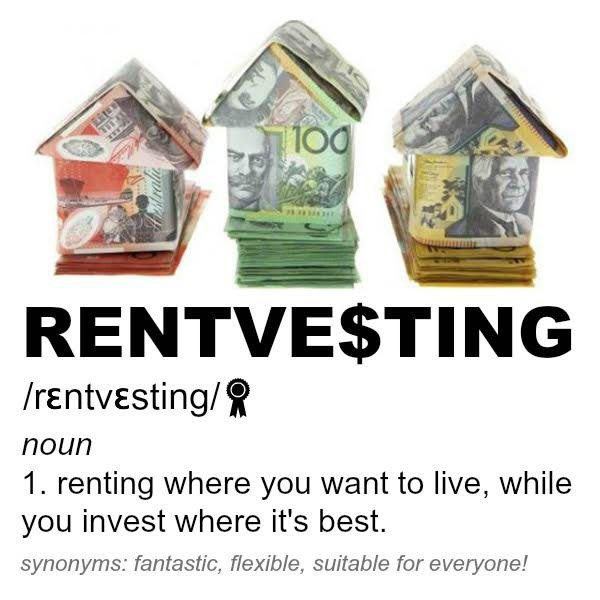 Rentvesting is the term millenials have coined in response to Australia’s rising house prices.
Rentvesting is the term millenials have coined in response to Australia’s rising house prices.
But, what is it? and why does it work?
Rentvesting is on the rise, for more reasons than one. Home owners are allowing others to cover the cost of their mortgage repayments, while they relax inside a different rental they call home. Would you consider applying this approach to home ownership? Let’s weigh up the pros and cons.
Lifestyle.
No longer does your lifestyle need to be sacrificed simply because you can’t afford to buy in your desired area. By rentvesting, you can buy somewhere affordable, and continue to rent wherever your heart desires. Perhaps your career requires you to stay close to the city; with house prices soaring in the Australian capitals (particularly Sydney and Melbourne), even buying a small inner-city apartment is virtually impossible unless your wage is comfortably within six digit territory. Thus, rentvesting could be your answer; by a house further out in a growing suburb, find some quality tenants, and continue living a life of convenience in the big city whilst earning capital growth – win win!
By not worrying about your own personal ‘wants’, you can narrow your property search to the houses that are within your price range and have plenty of capital growth potential. Don’t like the curtains? Not your problem! Owner-occupiers don’t tend to have this luxury, so make the most of it.
Tax benefits.
After this year’s federal election, I’m sure you are well versed on the ins and outs of ‘negative gearing‘ by now. A negatively geared investment property means your tax return will get a handy boost come EOFY. And while you may need to come up with a bit of cash to cover to remainder of your loan repayments, you can mitigate this by choosing where you rent; if you are cash poor, you can shift to a cheaper apartment when your lease is up, and comfortably afford your excess repayments.
There are plenty more tax benefits for those who own an investment property. Spruced up the garden to attract tenants? Claim your costs. Purchased building or contents insurance on your investment property? Thank you, tax man. Paid stamp duty when purchasing the house? Claim it (over a number of years). Accrued interest on your loan? Of course you have! Claim that too. Tax returns can become a little complicated when investment properties are in play; be sure to consult a professional before lodging, to avoid any raised eyebrows from the ATO.
What’s the downside?
Rentvesting is sounding pretty good, right? Well hold your horses for a second; there are a few things to consider before jumping gung ho into this home ownership method.
Firstly, you will not be living in your own home. Many can come to terms with this fact very easily, however others will see sentimental value in living in their own property. Lying in bed at night, knowing the roof over your head is the fruit of all your hard work and saving – rentvesting doesn’t offer such reward.
You also risk finding bad tenants, who could leave your beautiful house scratched and worn. They haven’t been saving for years to afford the place, so they may not show it as much respect as you would. Be careful, and choose tenants wisely (engaging a property manager may help).
And what’s the only thing worse than having bad tenants? Having no tenants, of course! There may be periods where your property is uninhabited, and you are left to cover both your loan repayments and your own rent simultaneously. It is best to build a ‘rainy day’ fund to act as a buffer in times like these.
The concept of rentvesting is the millenials’ answer to rising house prices, and certainly presents a new world of opportunity. However, as with all financial decisions, this method should be approached with care and caution. Chat to a mortgage broker to see whether you could make this method work for you.
Disclaimer: The advice provided in this article is general advice only. It has been prepared without taking into account your objectives, financial situation or needs. Before acting on this advice you should consider the appropriateness of the advice, having regard to your own objectives, financial situation and needs. We encourage you to consult a finance professional before acting on any advice provided in this article or on this website.
